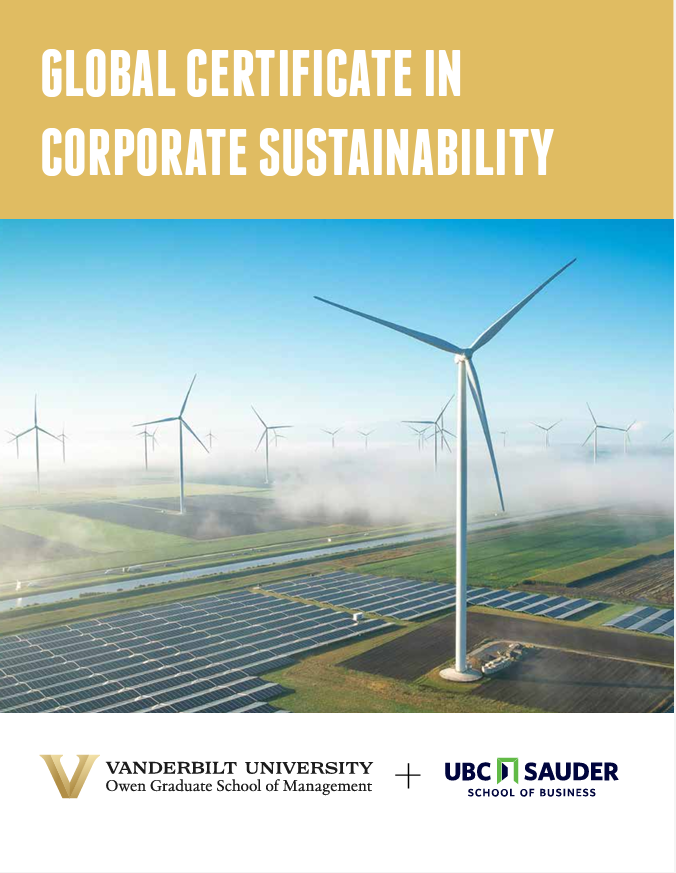A GLOBAL CERTIFICATE IN CORPORATE SUSTAINABILITY
This program is designed for professionals who want to gain an understanding of how sustainability fits into a firm’s strategy and how companies are meeting their sustainability goals through their production processes and by redesigning products.
Whether you are a brand manager focusing on product design and marketing, a procurement or logistics specialist, an operations manager, or a financial analyst, understanding the role that sustainability plays in today’s society and in corporations is becoming a business imperative.
The purpose of this certificate program is twofold: first to understand why firms are pursuing sustainability strategies and second to help you determine what a successful sustainability strategy might look like for your organization.
This online certificate program consists of 10 modules delivered over 2.5 months. The program will also feature 5 synchronous, live lectures, which will be recorded. Five live lectures will be scheduled throughout the 10-week program during which participants will gain insights from Vanderbilt Business and UBC Sauder industry experts, while also connecting with peers and industry professionals, and learning concepts and skills that can apply to their career.
Participants can earn 6.8 Continuing Education Units (CEUs) upon request. Connect with a program representative for more information.
Program Curriculum
| MODULE | OUTCOMES | FACULTY |
|---|---|---|
Sustainability | Context and Drivers |
|
Justin Bull |
Sustainability & Corporate Strategy |
|
Mark Cohen |
Shared Value |
|
Mark Cohen |
Sustainability Metrics and Driving Forces |
|
Jeff Gowdy |
Reporting Frameworks |
|
Jeff Gowdy |
Sustainability Across the Value Chain |
|
Jeff Gowdy |
Goal Setting, Net Zero, and Climate Change Strategy |
|
Jeff Gowdy |
Choices, Science, Strategy, and Systems in Sustainability |
|
Mark Cohen |
Motivation, Metrics, & Incentives |
|
Mark Cohen |
Transformative Technologies, Transitions, and Expanding the Scope of Sustainability |
|
Justin Bull & Mark Cohen |
Request
Information
To learn more about the Global Certificate in Corporate Sustainability and request a brochure, please complete and submit this form. You can also connect with a program representative directly by calling toll-free at 800.983.6485.

